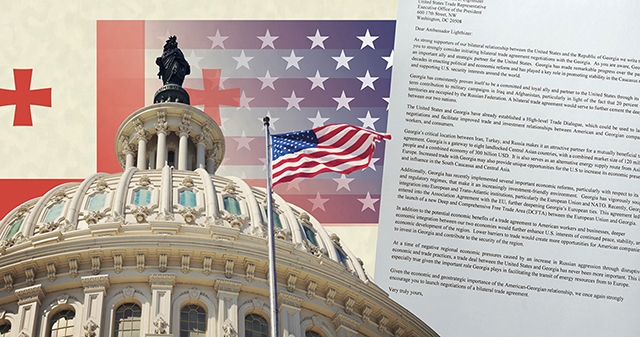The US’ Strategic Intent in Georgia
Op-Ed
The US’ interests in the South Caucasus are as long-lasting as they are characteristic to other major powers such as Turkey, Russia and the European Union.
There might have been vacillations in Washington’s position towards Georgia in past years or decades, but overall the American strategic thinking has remained intact.
One of the geopolitical imperatives of the US since the breakup of the Soviet Union was to enable newly independent Georgia use its geographic position as a nodal point in the nascent South Caucasus energy and transport corridor. Moreover, the effectiveness of the Georgian corridor would also underpin a bigger project, the Trans-Caspian Corridor (to consist of a pipeline, port-to-port contacts, etc.), which is still only an idea with some minor success, but could, under altered circumstances, become a geopolitical reality. This would inevitably increase Georgia’s independence vis-à-vis Russian transportation networks. This vision has proved to be successful and in the almost 30 years that have passed since the end of the Soviet Union, big steps have been made to limit Russia’s energy and infrastructural presence in the country.
Though, for many, a determining factor is the US military presence near Georgian borders or in the country itself, military protection is not as long-lasting as it might always seem. Of a more tangible essence have been the US aid programs to improve Georgia’s infrastructure, which is traditionally hampered by difficult geography (a factor which always limited Georgia’s political power and ability to control far-flung territories).
One of the important future tasks for the US is supporting the successful construction of the Anaklia Port, as the port’s location and size would increase not only Georgia’s transit capabilities but also the implementation of the US strategy in Georgia: helping Tbilisi be less dependent on alternative transit routes.
Despite Georgia’s being a geographically small country with limited military and economic potential, still it is important for the US to analyze the internal political developments. As Georgia gears up for crucial parliamentary elections this October, extensive cooperation with various parties should be carried out. From the US perspective, the most popular parties in Georgia are in fact pro-western. This serves as a good basis for the composition of a long-term strategy.
An important pillar of the US policy in the South Caucasus and Georgia in particular would be Washington’s deeper cooperation with Turkey. Though the two states have experienced some troubles in recent years, Ankara and Washington are still strategically aligned. It is in Turkey’s utmost interest to uphold Georgia’s security, as the latter serves as the only land link for Turkey to reach Azerbaijan and the Caspian Sea. This also means that Ankara is averse to Russia strengthening its positions in the South Caucasus. Thus, in broader terms, Turkey and Azerbaijan’s strategic interests over Georgia are more aligned than they at times might seem.
Another crucial sphere where the US could provide vital expertise and assistance is in the economy. Still, no long-term stability for Georgia would be possible unless the country enjoys considerable economic growth based on industrial and manufacturing capabilities. Georgia dearly lacks these elements, making the country vulnerable to regional political and economic developments. In other words, this help will be more fundamental for the US’ position in the South Caucasus overall.
In retrospect, it can be argued that Washington’s policy towards Georgia has not been changed since the end of the Soviet Union. There were periods of low-intensity cooperation, alternated by deepening of bilateral relations, but overall the US strategic intent towards Georgia has remained the same: improving the infrastructure as a basis for the country’s strengthened sovereignty against external geopolitical odds.
By Emil Avdaliani
US congressmen encourage the US Trade Representative to launch negotiations of a bilateral trade agreement with Georgia, summer 2018. Image source: mfa.gov.ge












